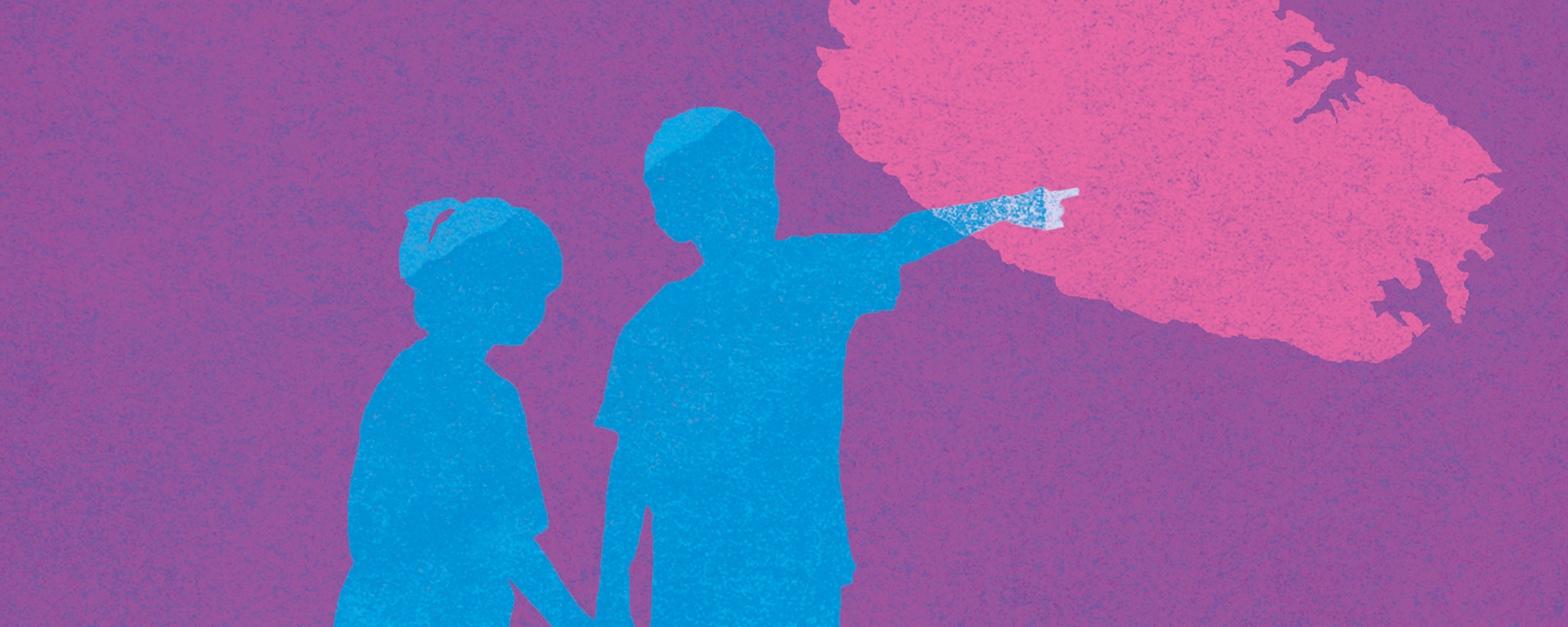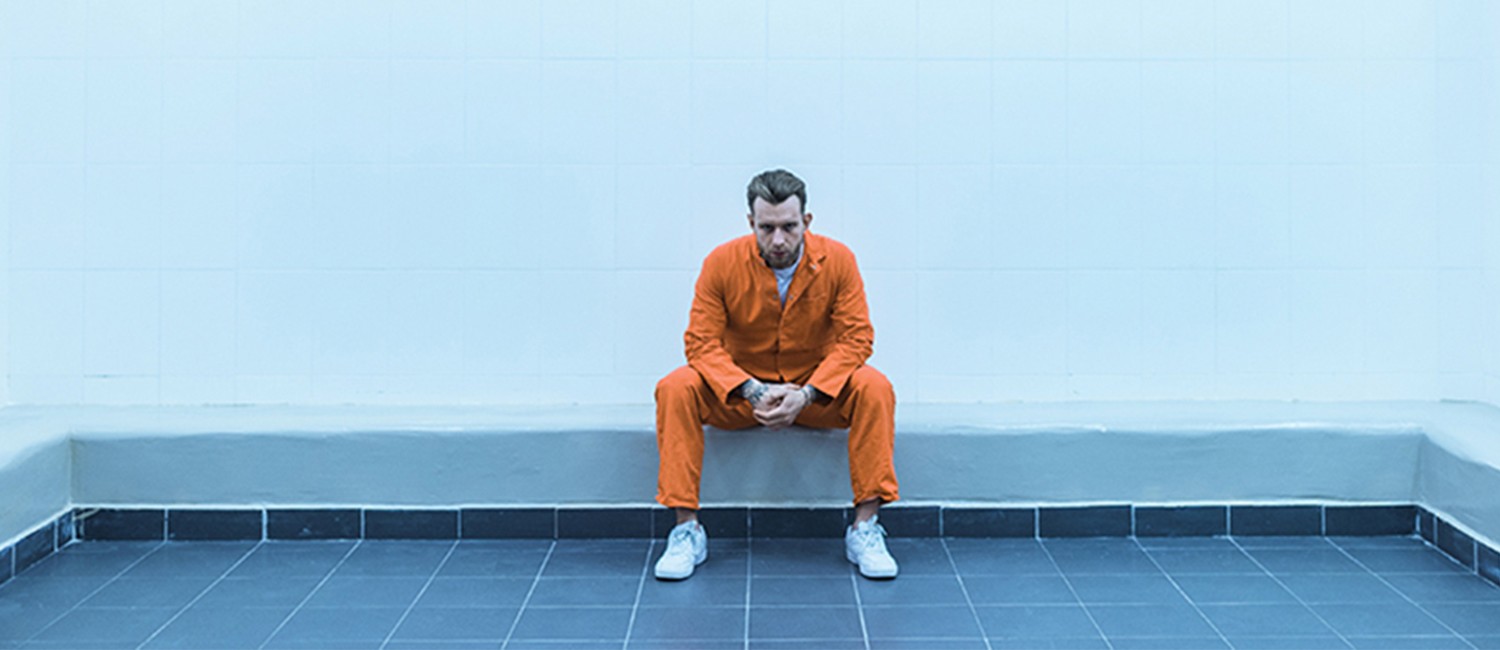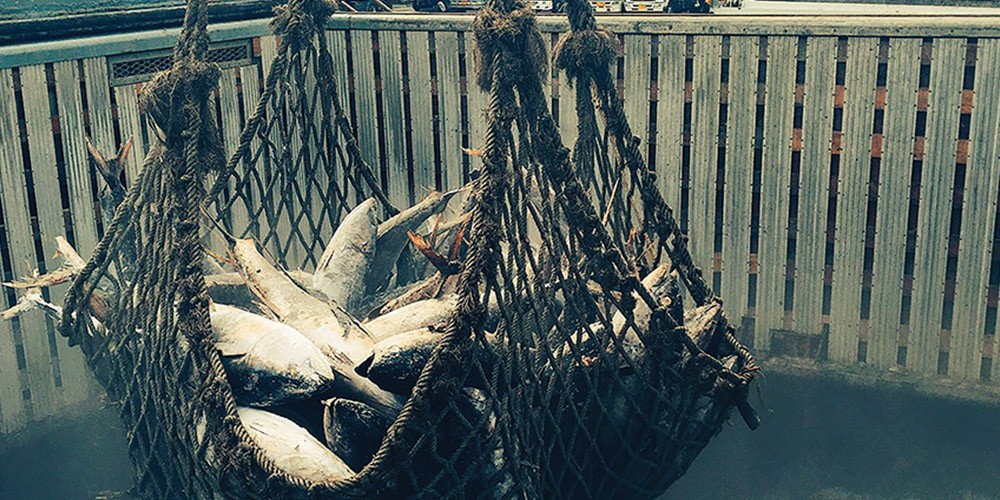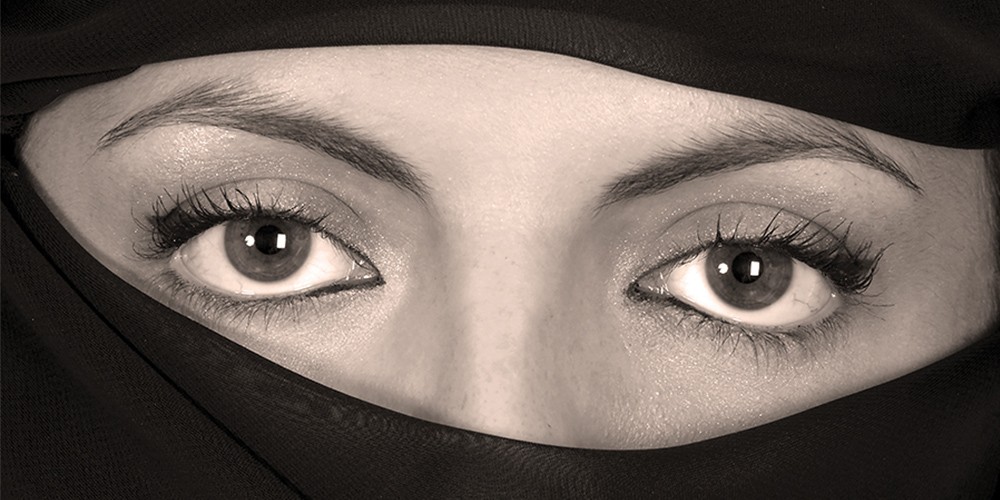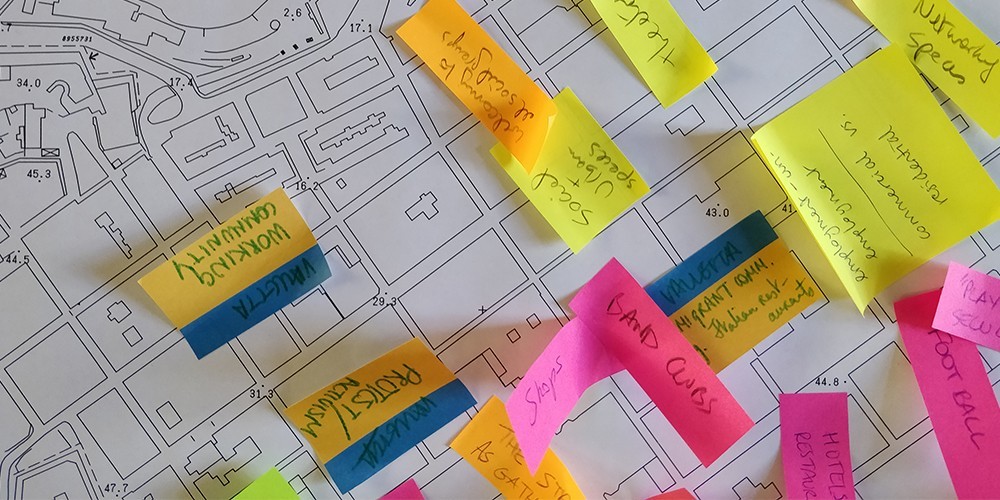As Malta celebrates its 20th anniversary within the EU, the 2024 EU National Institutes for Culture (EUNIC) Film Festival showcased the power of film to reflect Europe’s cultural mosaic. THINK explores what it means to be European.
Continue readingMoving to Malta
Our childhood years are meant to help us develop our sense of identity, belonging, culture, and home. But what happens to those for whom childhood is dominated by moving to a new country with a new language, culture, and social norms? Prof. Carmel Cefai speaks to Becky Catrin Jones.

It’s a small world these days. Developments in technology and transport mean it’s much easier to pack your bags and head off for a fresh start in a foreign land. For many, the destination is Malta. As a beautiful island in the Mediterranean Sea with a booming economy, it is no surprise that it’s drawing the attention of bright sparks and aspiring families from Europe and beyond. In fact, Malta currently boasts the fastest growing EU population.
Of course, it’s not always through choice that you might find yourself leaving your homeland behind. Humanitarian crises and ongoing wars in North and sub-Saharan Africa and the Middle East have seen thousands set sail under the most treacherous conditions in search of safety. For this population, Malta is often the first port of call between the dangers of home and the promise of hope in Europe.
It seems strange to group these populations together, given the stark differences in the journeys that bring them to Malta and the life they seek here. But together, this influx of people has contributed to a sudden rise in interculturalism, where people from different backgrounds interact and influence one another. This is a reality all parties are having to adapt to.
Even in a fairytale scenario, childhood is challenging. Growing up when you’re far from home, look different to everyone around you, and don’t speak their language, makes the challenge reach a whole other level. Children’s wellbeing is an increasingly important and emotive topic to study in Malta, which is a signatory to the United Nations Convention on the Rights of the Child. A team of researchers from the Centre for Resilience and Socio-Emotional Health (University of Malta), set out to explore the situation. They questioned: How do you settle into a new home and identity when you are still trying to figure out who you are and where you are from?
Finding the voices
Children are often a silent group. When analysing the wellbeing or effect of migration on a population, they are usually spoken for by adults. For this study, however, Prof. Carmel Cefai and his team wanted the child’s voice as well. The scope of the study was ambitious; every single contactable, non-Maltese child living in Malta was invited to take part and share their experiences. But this was a challenge.

‘Identifying and obtaining access to foreign children from age zero to 18 was not easy… Some schools suffered from research fatigue and did not wish to participate; whilst translation of instruments and data and use of interpreters drained the limited budget we had for this project.’ Maltese children were contacted and invited to participate too. After all, they are as affected as anyone else when around one in ten of their schoolmates are not Maltese.
The study focused on four main areas; social interaction and inclusion, education, subjective wellbeing and resilience, and physical health and access to services. They covered the experiences of children up to 18 years of age, from various schools, who were either settled into their own family houses or still in open shetlers following a difficult journey to Malta. They also aimed for a balance in migrants’ nationalities; European, North American, African, Middle Eastern, or East Asian; as the experiences of each population are understandably different. Cefai and his team found that the experiences of migrant children in their everyday life are quite positive. In some areas, even more positive than those of Maltese children, with only 8% reporting difficulties in their psychological wellbeing compared to 10% in the native population. Overall, they found that migrant children feel safe, listened to, and cared for by the adults in their communities. Despite the language barriers, most feel like they have a support network, and enough friends though more often than not those friends are other foreign children, not Maltese.They are able to keep up at school, and generally do as well as their Maltese peers, with teachers reporting high levels of engagement.
Adapting to a new world
All is not rosy. Bullying in schools is quite common, though less frequent than that reported by native Maltese children. One in five migrant children also do not feel they have enough friends.
Younger children seem to be more included and engaged than secondary school ones, and in general females fared better in the study than male classmates. That said, age and gender weren’t the main influencers when it came to predicting how well the children engaged at school and in their communities. ‘The study suggests that there are different layers of reality, with the big picture hiding the socio-economic, psychological, and social difficulties encountered by a substantial minority,’ remarks Cefai.
Unsurprisingly, those who speak Maltese feel more engaged than those who don’t, and those who aren’t confident in English are in an even worse position. However, the factor producing the biggest differences between the overall wellbeing, health, and education of the children is their country of origin. ‘The health, wellbeing, and relative comfort enjoyed by many children of European economic migrants contrast sharply with the poverty, poor accommodation, psychological difficulties, learning difficulties, and experiences of discrimination of many children from Africa and the Middle East’, says Cefai. Western Europeans and American children scored highly over all criteria, whereas African and Middle Eastern children are far more likely to be lonely or suffering from social or economic difficulties.
They are more likely to be less proficient in English, which leads to difficulties in making friends with children from other cultures and which also contributes to problems in their education. Although they are generally nourished by their spiritual and religious communities, in all other areas these children report social and emotional difficulties and are also more likely to report facing prejudice and discrimination. Healthcare proved problematic; many parents and children worry that they are subjected to discrimination whilst using services, or do not have enough information to use them in the first place.
A land of opportunity
Despite the additional challenges that these particular migrant children face, the overriding feeling is one of acceptance and hope. Even children in open centres view Malta as a land of opportunity, even when some are in suboptimal housing and lack basic necessities. What children in open centres do not perceive is Malta as their home. Better living conditions in the community, more cultural sensitivity, and openness to interculturalism may help to reduce the feeling of ‘us’ and ‘them’.
So what do Maltese children think? Again, the overall conclusions show that children are open, tolerant, and welcoming of this dramatic and quick rise in multiculturalism that has happened. However, on closer inspection, it seems that there is still a way to go before we can truly call ourselves an open and accepting society.
Relatively few Maltese children have many foreign friends, preferring to spend time with native peers. This hesitation is stronger in children who aren’t from a mixed community, whereas children in independent schools and more exposed to foreign children seem more at ease with the idea that the future might be even more multinational and intercultural. As many as one in three Maltese children also report feeling unsafe in culturally diverse communities, and worry about potential negative consequences of these changes in the future. There also appears to be particular prejudice against children from Africa and the Middle East in contrast to children from Europe, the US, Canada, and Australia.
What has become clear is that both foreign and native children could do with some reassurance. So what do Cefai and his team suggest we can work on to help everyone embrace this new culturally diverse reality?
A united future
‘[We need] to address the needs of marginalised and vulnerable children, particularly those coming from Africa and the Middle East’, says Cefai. There’s also a lot both populations could learn from each other; caring for their environment, sharing cultures, or even adopting healthier lifestyles. By encouraging more open and judgement-free spaces to play, learn, and share, we’ll take away the ‘us’ and ‘them’ ideology from a young age and replace it with one of acceptance, curiosity, and openness to new ideas. This will help prevent the dangerous spiral of segregation and ghettoisation, seen all over Europe.
Cefai suggests a space for more positive role models for those migrant children thrown into a foreign culture that doesn’t seem to have space for them. Having teachers, healthcare workers, or even political representatives who have similar backgrounds will foster this inclusive nature, showing that everyone has a voice when it comes to working together to make this country a home for all.
There’s work to be done with Maltese children. ‘Whilst it is encouraging that the majority hold positive attitudes towards interculturalism, it is worrying that as they grow older children’s attitudes tend to become less positive,’ says Cefai. ‘It’s our responsibility to ensure that educators, community leaders, and parents of Maltese children are part of a national initiative to embrace interculturalism.’
Although overall a positive study, Cefai and team have shown we still have a way to go until every child in Malta feels safe, happy, and at home. And in this ever-changing and diverse environment, Malta has real potential to be an example to its neighbours on how a successful multicultural society can work on every level. These children are our future.
STEM ambassadors thrashing stereotypes
Over the last four decades, STEM industries have risen to great heights. Scientific, technological, engineering, and mathematical minds have been called to rally. And the demand continues. How can you contribute?
Few would dispute that technological and scientific advancements dominate the 21st century. Adverts provide ample proof. From tablets to smartphones, to robot home appliances and driverless cars, our world is changing fast. As a result, we are now living in a global knowledge-based economy where information can be considered as the highest form of currency. This reality comes with both benefits and challenges.
Statistics from 2013’s European Company Survey show that 39% of European Union-based firms had difficulty recruiting staff with STEM skills. Malta is no exception. Another report in 2018 showed that people with STEM careers are still in short supply locally, especially in the fields of healthcare, ICT, engineering, and research. So, while the jobs are available, there aren’t enough people taking up STEM careers, and this is holding Malta back.

There are many reasons for this trend. For one, Malta has a low number of tertiary level graduates; the third lowest in the EU. An array of harmful stereotypes can also shoulder some blame. The ‘fact’ that people in math, science, and technology ‘don’t have a social life’ is unhelpful. The ‘nerd’ image is still prevalent, especially among the younger generations that are still in primary and secondary school. Then there is the ‘maleness’ associated with STEM jobs and industries. According to Eurostat statistics, in 2017, from 18 million scientists and engineers in the EU, 59% were men and 41% women.
Still, this is far from the whole picture.
Employers have reported instances where, despite having enough graduates to fill roles, applicants did not possess the right non-technical skills for the job. This was especially true for abilities such as communication, creative thinking, and conflict resolution.
Many were unprepared to work in a team, to learn on the job, and to problem solve creatively. This is a real concern, especially for the country’s future. At the rate with which markets are evolving, a decade from now young people will be applying for jobs that do not exist today, and the country needs to prepare students for these roles. And it has to start now.
The Malta Council for Science and Technology (MCST) is trying to do this through an Erasmus+ project called RAISE. They are launching an Ambassador Programme to empower young students to take up the STEM mantle. STEM Career Cafés are going to be popping up in schools all over Malta, alongside a Career Day at Esplora aimed to inform and inspire. This is where you come in.
They want undergraduates from the University of Malta and MCAST to work with Esplora by sharing your experiences in STEM and telling your stories to encourage those who may be considering a STEM career. STEM Ambassadors will gain important public engagement skills while making research and science careers more accessible.
STEM is crucial in our contemporary world; our economies depend on it. It has completely changed the way we live and opened up new prospects for a future we never imagined. For those who have already made up their mind to be a part of it, there is now the opportunity to empower others and guide them in finding their own path.
Note: To become a STEM Ambassador, email programmes@esplora.org.mt or call 2360 2218.
The MCST, the University of Malta, and the Malta College of Arts, Science and Technology have embarked on a national campaign to promote STEM Engagement. Its first activity was a National STEM Engagement Conference.
HERCULE project
The taxes of every citizen in the European Union (EU) contribute to the EU’s immense budget, and measures are needed to ensure these funds are used properly. Benjamin Charles Cassar talks to Prof. Ivan Sammut and Dr Jelena Agranovska, who are studying the effectiveness of such measures at a national level.
The EU’s Institutions operate throughout the continent on a massive scale, and in the 51 years since its conception, the scope of the EU has expanded to affect each and every one of our daily lives. The world would be very different without the Union.
But this progress has not been without its hiccups. As Brexit’s deadline creeps closer, other countries, such as Hungary and Poland are experiencing political turbulence and rising Euroscepticism. Come the European Elections in May, these issues will bare their teeth.
Despite this, the EU has had momentous victories in its pursuit of continental integration. Take, for example, the Common Market allowing for easy trade, the Schengen jurisdiction that simplifies travel, and the much-lauded mandate for free data roaming. The EU has also been moving towards harmonising its efforts to protect its financial interests.

In view of this, over the past few months, Prof. Ivan Sammut and Dr Jelena Agranovska (Faculty of Laws, University of Malta) have been leading the Hercule Project, a comparative study that looks into the implementation and enforcement of European Criminal Law. Together, they are investigating the development of legislation, focusing on the recent PIF (Protection of the Union’s Financial Interests) Directive. The aim is to increase people’s confidence in EU institutions and ensure that funds are managed transparently and appropriately.
Apart from the legislative side, the study will also look into the bodies that work to protect the EU’s (and thus all its citizens’) financial interests—namely the European Public Prosecutor’s Office (EPPO), the European Anti-Fraud Office (OLAF), and Europol.
To this end, Sammut and Agranovska selected 12 countries based on their size, geography, and legal system to gauge each state’s reception of European legislation. These countries include Germany and Malta, among a number of others.
Each country report is being handled and written up by a local expert, with the team at the University of Malta offering guidelines and template questions. However, in practice, each team is given free reign on how to conduct their studies, as long as they stay true to purpose.
Recently, I had the opportunity to sit down with Sammut and Agranovska. They offered insight into its reasoning as well as the practical implications for citizens uninitiated in the intricacies of European law—myself included.
‘It affects everyone at the end of the day,’ Sammut notes. With blockchain and cryptocurrencies rapidly gaining interest, financial and IT crime protection are becoming more relevant to everyday life. ‘However, many times member states are only concerned when there is fraud with their own sources,’ Sammut continues. The PIF Directive will fit into existing national legal systems and balance out the field.
The project so far has revealed discrepancies in the uptake of legislation between Member States. Unsurprisingly, Sammut is quick to point out Germany as being at the forefront of implementation. Indeed, Angela Merkel is very proactive in most EU-level discussions. However, states such as Lithuania continue to lag behind, with standards seemingly lower than the rest of Europe. The election cycle can also complicate matters, as is the case with Poland. Initially eager to be part of EPPO, since their elections, this has become increasingly unlikely, with the Law and Justice Party consistently at odds with the European Union.
Diving deep into the implications for each state is impossible. However, the team noted these differences in implementation during a one-day workshop held in Valletta in October, when rapporteurs from each of the 12 participating countries came together to discuss their findings thus far.
Dr Stefano Filletti, Malta’s rapporteur in the study, points out the issue with parallel administrative and criminal investigations. As things stand now, OLAF begins an administrative investigation, passes on the information to the Attorney General’s office, who in turn prompts the Maltese Police Force to begin its own investigation. This criminal investigation works independently of the previous administrative investigation, disregarding its findings and starting anew. The problem is efficiency. The two investigations should be synthesised, working in tandem, particularly because when investigating activities with a financial interest, speed is key. Dual investigations work against this goal. Filletti notes that while the PIF Directive should keep this goal at heart, it instead focuses on the definitions of offences, while remaining ‘completely silent’ on recovery.
Filletti notes the language barrier as one obstacle. For example, the Italian term sparizione dei soldi literally translates to ‘disappearance of funds’. However, this does not correlate to any Maltese law. So should we consider it as related to fraud? Or perhaps misappropriation?
Prof. Jaan Ginter of Estonia echoes Filletti’s concerns on dual administrative and criminal investigations, raising the issue of non bis in idem, or double jeopardy. This relates to the concept that a person should not be tried twice for the same crime, which the PIF directive seemingly ignores, allowing for concurrent administrative and criminal proceedings.
Harmonisation of penalties is also a concern for Ginter, as in some Member States (particularly Eastern members) a €1,000 penalty would be deemed steep, while others, such as Germany or Luxembourg, would see it as negligible.
In France, Dr Araceli Turmo notes that while politicians, judges and practitioners are approaching the legislation positively, a multitude of agencies need to show a more coordinated effort.
Agranovksa, serving a dual role as Latvia’s rapporteur, expects PIF Directive implementation to go smoothly, as many of its provisions are already in place. However, money laundering remains rife in the country, with the accusation this year that ABLV, Latvia’s third largest bank, has been perpetrating large-scale money laundering. Following the scandal, a law was urgently implemented outlawing shell companies. Further implementations will follow, and they are unlikely to encounter much opposition.
The general consensus remains that most national legal systems are not adequately prepared to take on European Law. However, this is partly why this study is taking place—to give states the tools they need to equip themselves.
Sammut, Agranovska and their European counterparts have barely scratched the surface, and the implications of their work will certainly go far in understanding the limitations of the EU’s Member States. While the EU is faced with the immeasurable task of legislating for an incredibly diverse membership, it cannot continue going from strength to strength without considering this reality. Member states are not on a level playing field, and everyone needs to work together to adapt to this reality.
Note: In June 2019, Sammut and Agranovska will be discussing the implications and scope of the study at a conference entitled
EU & national criminal law in Fraud, Corruption, Blockchains: friends or foes? For more information, email Elisa Attard on elisa.attard@um.edu.mt.
Taking solar to sea
In a world first, a small team of engineers at the University of Malta is attempting to prove that harnessing solar power in the open sea is theoretically possible and cost-effective. Laura Bonnici speaks to Prof. Luciano Mulѐ Stagno to learn more about the ground-breaking Solaqua 2.1 project.
Renewable energy is in the spotlight. In Malta—an island that is said to enjoy an average of 300 days of sunshine per year—solar power has become mainstream, enabling the country to reach its goal of using 10% renewable energy by 2020.
But any advantage Malta has in terms of abundant sunshine, it loses through its lack of another vital resource: space. Measuring just 316 km², Malta’s limited surface area means that, beyond the existing photovoltaic (PV) panels installed on rooftops or disused quarries, any land left for larger PV installations is rare and expensive.

Prof. Luciano Mulѐ Stagno at the University of Malta believes the answer to this problem lies not on land, but at sea. Malta being surrounded by water, he has proposed that installing solar panels in open water, in offshore floating PV farms, could be as cost-effective and reliable as those on land—an idea that has never progressed beyond the theoretical stage anywhere in the world.
‘There are many PV projects happening on fresh water everywhere, from China and the UK to France and USA. But none of them are working on open sea,’ explains Mulѐ Stagno. ‘Their PV farms are installed in more sheltered, land-locked waters such as irrigation ponds or lakes, believing that PV farms cannot survive sea conditions. The Solaqua project aims to prove that they can survive, and do so at a comparable cost to land-based PV farms.’
When funding was secured from MCST in 2012, the previous Solaqua 1.0 project set about achieving these ambitious aims. Testing various prototypes out at sea, it confirmed that large, floating platforms were viable, cheap to construct, and could produce more power than similar systems on land.
The sea proved beneficial for many reasons. ‘The offshore panels produced around 3% more energy than similar land-based modules simply by being at sea, possibly due to the cooler temperatures at sea and a less dusty environment.’
The success of the first project inspired a second. With this one, the modular raft was designed and tested. ‘Solaqua 2.0 was financed by Takeoff [The University of Malta’s business incubator] in July 2017, with a preliminary design for the platform almost completed. Now discussions are underway about possible patents for the design,’ Mulѐ Stagno elaborates. ‘The ultimate aim is to launch a large farm in Maltese territorial water which, if it meets

the cost and power output targets, will be followed by other systems worldwide.’
The Professor and his team (marine structural engineer Dr Federica Strati, systems engineer Ing. Ryan Bugeja, and engineer Martin Grech) are now starting the next phase of the Solaqua project. Before the team builds and launches a full-scale system, they have to conduct a series of rigorous wave tank tests. Using a scale model while mimicking the worst possible sea conditions that the system may encounter, the team will be able to refine the design and optimise power output by testing the effect of water motion, cooling, or even different types of panels.
‘Through Solaqua 2.1, we hope to reassure investors that the system is viable. Once completed, we will be ready to launch a full-scale system that could be used not only by islands such as Malta, but also in coastal cities around the world which have insufficient land available for PV systems.’
Investors are being invited to join this project to push for global commercialisation. To reach this stage, several local entities supported the project. The Regulator for Energy and Water Services, with the help of the RIDT (the University of Malta’s Research Trust), invested €100,000 to cover the cost of constructing the scale model, as well as testing, equipment, transport, and engineers. And now that the project is commanding international interest, potential investors are being sought for the half a million euros needed to achieve a full-scale floating solar farm in Maltese waters.
‘This is a homegrown project, in which Malta could be an example to the world,’ explains Mulѐ Stagno. ‘We have already placed Malta at the cutting edge of this research area by being the first to test small systems in the open sea. Now we need to find an investor willing to take the plunge and help us create the world’s first full-scale floating solar farm. With Solaqua, Malta could be at the forefront of a ground-breaking new global industry—one which has the potential to change the way solar power is collected and used the world over.’
Protecting prisoners from radicalisation
Curbing extremism and violence is high on the global agenda. With prisons known to be a breeding ground for recruiters, are we doing enough to protect our inmates? Michela Scalpello writes.
Continue readingPolicing the seas
Living on an island in the middle of the Mediterranean, chances are that fish are an integral part of your diet. But do you think about how the fishing industry actually works? Kirsty Callan talks to Dawn Borg Costanzi about the need for safer, more ethical practices.
Continue readingCan the EU empower women in Afghanistan
The European Union’s success relies on positive relationships—cooperation and good will is key. The EU’s Development and Cooperation Policy exists to support these connections. Its focus is on external relations, establishing partnerships with developing countries and channelling billions of euros to them every year. The European Commission plays a crucial role in this regard, managing and implementing directives on behalf of the EU. But what do we really know about the effectiveness of EU aid in helping citizens in developing countries? And how far is female empowerment part of this agenda?
In short—we don’t know much!
Research in this area is scarce, and this is what prompted me to tackle this question myself, under the supervision of Dr Stefano Moncada. My specific focus was on assessing whether the EU is committed to gender equality and female empowerment, taking Afghanistan as a case study. I reviewed all the available aid programming documents from the last financial period, and assessed whether the EU was effectively supporting Afghanistan to achieve the fifth Sustainable Development Goal (SDG) of gender equality. I adopted a mixed-method approach, using content analysis and descriptive statistics. Basically, this meant coming up with a very long list of keywords related to gender, and checking how many times these words appeared in the policy documents. Whoever invented the ‘ctrl + F’ function saved my academic life!
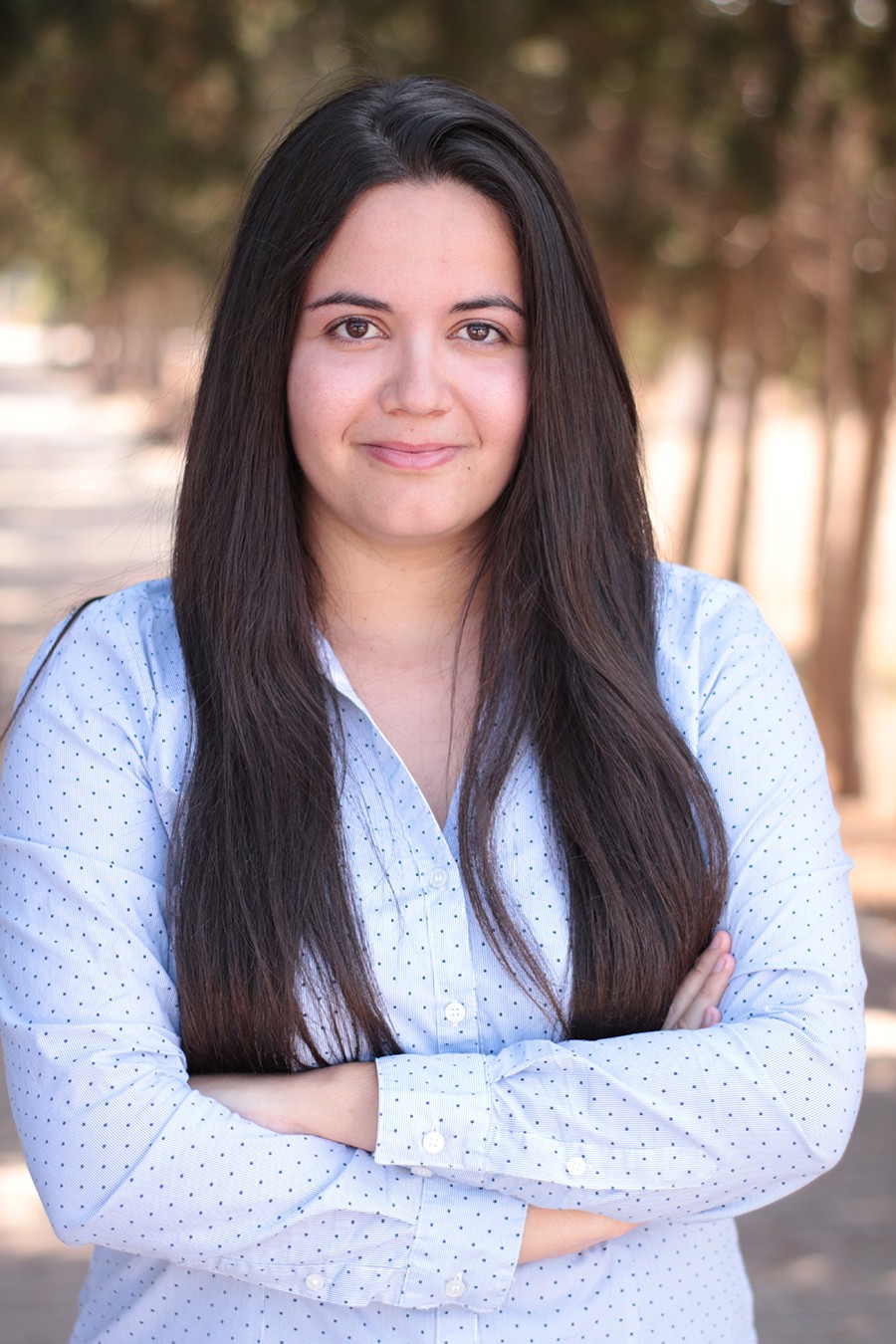
The results of my research were pretty surprising. I found that the EU is now focusing much more on gender empowerment on the ground in Afghanistan than it did a few years ago.
According to my data, and when comparing this to previous studies, it appears that the EU’s commitment to supporting this goal is growing over time. However, I also found that there is substantial room for improvement, as the attention given to such issues is rather conservative, and not equally balanced across all the SDG targets. For example, the need to increase women’s employment is mentioned many more times than the need to support female education or political participation. This is surprising as education is key to many other improvements in wellbeing. Nevertheless, I believe the overall results are encouraging and important, not only to highlight improvements in the effectiveness of the EU’s development and cooperation policy, but also in reply to a growing sentiment that puts into question the EU’s capacity to manage, and lead, in key policy areas. We can only hope that this continues exponentially.
This research was carried out as part of a Bachelor of European Studies (Honours) at the Institute for European Studies, University of Malta. The dissertation received the ‘2018 Best Dissertation Award’.
Author: Rebecca Zammit
Grassroot legacy
Capitals of Culture want legacy. Wrocław 2016 established a microgrant system for small operators that is still in place. Aarhus 2017 combined qualitative and quantitative methods to evaluate a city’s cultural sustainability. Valletta 2018 wants to leave behind a vibrant grassroots movement actively shaping the country’s cultural policy. Rachel Baldacchino speaks to Szilvia Nagy to find out how this is possible…
Continue readingSharing is caring, but at what cost?
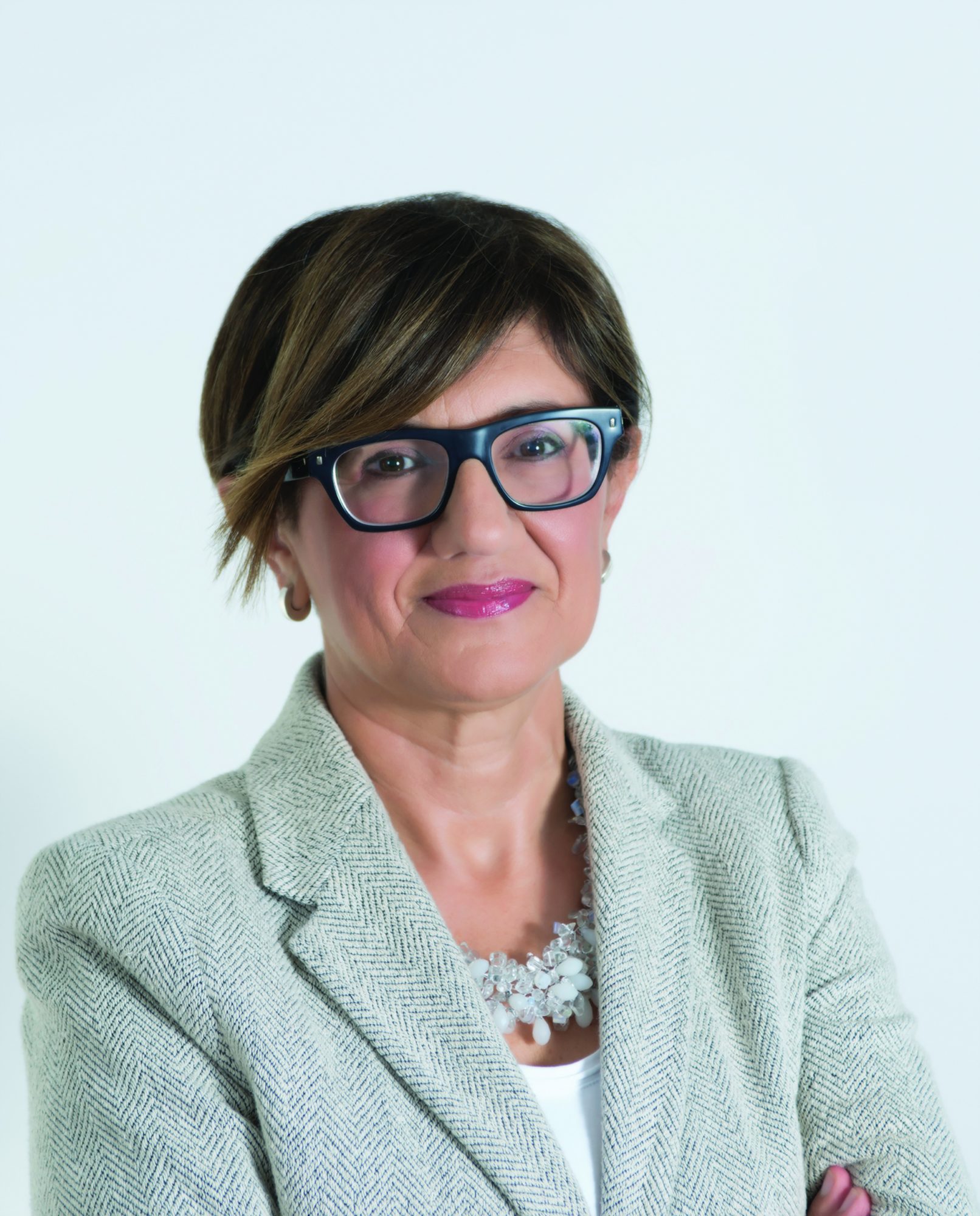
Life is hard sometimes. Juggling the demands of work with family while remaining healthy and sane can be tough. Done successfully, that lifestyle can look like a carefully choreographed dance. Add a bout of the flu to the mix though, and the dance gets thrown off. Now you find yourself strewn on the dance floor, with hurdles coming your way.
So far, mothers in our societies have carried the lion’s share of caring responsibilities and bear the Motherhood Penalty, affecting their earnings and career progression, amongst many other things. The International Labour Organisation claims that closing the gender gap in caring responsibilities between women and men is a priority for social development in the 21st Century.
The European Union (EU) is proposing a series of measures which aims to do exactly that. The first tackles paternity leave. At the time of writing, men in Malta are allowed at most two days off from work when they become parents. Under the new scheme, fathers will be able to take at least 10 working days of paid paternity leave around the birth of their child. When it comes to parental leave, a non-transferable quota of four months will be reserved for each parent to take, up until the child is 12 years old. It should be noted that 90% of fathers across the EU do not make use of parental leave at present. Finally, there is caring leave for workers who care for seriously ill or dependent relatives. These people will be entitled to five additional days of paid leave.
Whilst these three initiatives make sense, when analysed through the gender lens, the reality is that when people make use of these measures, they will not be compensated in full, but at the replacement rate of compulsory sick pay level. This immediately sets off the alarm bells.
Taking parental leave could mean a reduction of around 80% in income. Are Maltese parents, especially fathers, willing to accept such a drastic pay cut with every new child that arrives, along with a spike in costs? The result will be that fathers are likely to shun this additional leave, while mothers may be more prone to take the extra leave at the reduced pay rate. This will simply reinforce gender roles and gender stereotypes.
The aspect of this law that equates parental and caring leave to sick leave has to be removed. Parents manoeuvring through the fast lane of life and trying to care for their children by taking paternity, parental, or caring leave are not sick, so why pay them as such? Why impose a parental penalty on parents who are bringing up the next generation of citizens? The EU needs to do some serious rethinking if it really wants to contribute to the most significant social development of the 21st century.
Author: Dr Anna Borg


